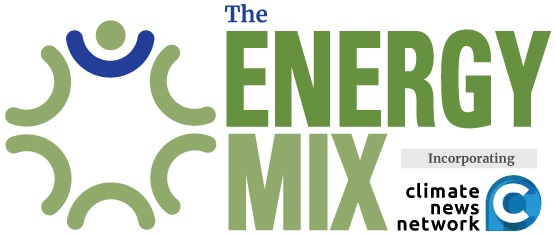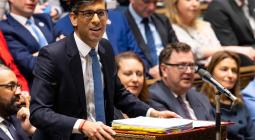Nations Pressured to Deliver on Climate Pledges Ahead of UN Summit
Countries around the world are facing increasing scrutiny over their renewable energy commitments and promises to phase out fossil fuels ahead of this year’s United Nations climate change conference in Azerbaijan.
During the recent UN General Assembly in New York, the International Energy Agency (IEA) released a report calling for governments to live up to the targets adopted last year at COP28 negotiations in Dubai as this year’s COP29 summit looms. The agency focuses on the global target to triple renewable energy capacity and double annual energy efficiency improvements in this decade, which could “get the world fully two-thirds of the way to a Paris-aligned energy system by 2030.”
“If done correctly, their achievement would reduce the world’s greenhouse gas emissions by 10 billion tonnes by the end of the decade compared with what is otherwise expected,” says the IEA.
But while the targets are achievable, they “hinge on additional international efforts to set the right enabling conditions,” the Paris-based IEA adds. Tripling renewables capacity would be an outstanding achievement, but it will not be effective without a built-up electrical grid to match.
And while doubling energy efficiency improvements globally “could provide larger emissions reductions by 2030 than anything else,” it would have to be matched with policies to address country-specific needs, the IEA says. Rich countries should focus on electrifying established sectors for home heating and transportation, while emerging markets should work to enforce efficiency standards for new developments.
In a separate report, Oil Change International looked at the COP28 commitment to transition the world away from fossil fuels. Despite signing this first-of-its-kind pact, governments continue to prop up the fossil fuel industry with public money, says Oil Change.
Achieving the phasedown could also be an avenue for wealthier nations to support vulnerable countries that need US$1 trillion in funding to adapt to and mitigate climate change, Oil Change adds. A series of measures to collect windfall taxes on fossil fuels, end harmful subsidies, and implement a wealth tax on billionaires would exceed the requested amount five times over.
“There is no shortage of public money available for rich countries to pay their fair share for climate action, at home and abroad,” Oil Change public finance lead Laurie van der Burg told the Guardian. “They can unlock trillions in grants and grant-equivalent climate finance by ending fossil fuel handouts, making polluters pay, and changing unfair financial rules.”
Government subsidies for other sectors too could be redirected to better outcomes, Earth Track finds in a third report. In a recent research update on environmentally harmful subsidies (EHS), Earth Track says worldwide subsidies that harm nature add up to US$2.6 trillion per year, or around 2.5% of global GDP. These subsidies have increased by more than $800 billion since the organization’s last report in 2022—or $500 billion after adjusting for inflation.
The Guardian says examples of EHSs include “state support for large fishing vessels that drive overfishing, and government policies that subsidize petrol, synthetic fertilizers, and monoculture crop production.”
These subsidies could be redirected to benefit people and the environment, the report authors say. They urge governments to make good on their pledge to repurpose at least $500 million in subsidies annually by 2030, as declared at the COP15 biodiversity summit in Montreal in 2022.
In its 2022 analysis [pdf], Earth Track includes as EHS cases where “public money or other forms of support is directed to specific industries if they reduce pollution or mitigate environmentally harmful practices.” This could include funding to farmers to promote climate-friendly practices through programs like Canada’s On-Farm Climate Action Fund.
“This may seem counterintuitive given that the funds can improve environmental quality in localized ways,” Earth Track says. But the report maintains that any subsidy that violates the polluter pays principle could be an EHS, artificially reducing the cost structure of polluting industries and improving their competitive position against more sustainable companies and products.
The programs also provide short-term benefits at the expense of much needed structural changes, writes Earth Track.
As an example, the report cites subsidies to help build plastic recycling facilities. They may increase reuse rates, “but if consumers and producers of plastics are thereby spared much of the cost of managing that waste stream, it will do nothing to discourage its continued growth or encourage the development of higher-value secondary markets.”
Cover photo: Dendodge/wikimedia commons





